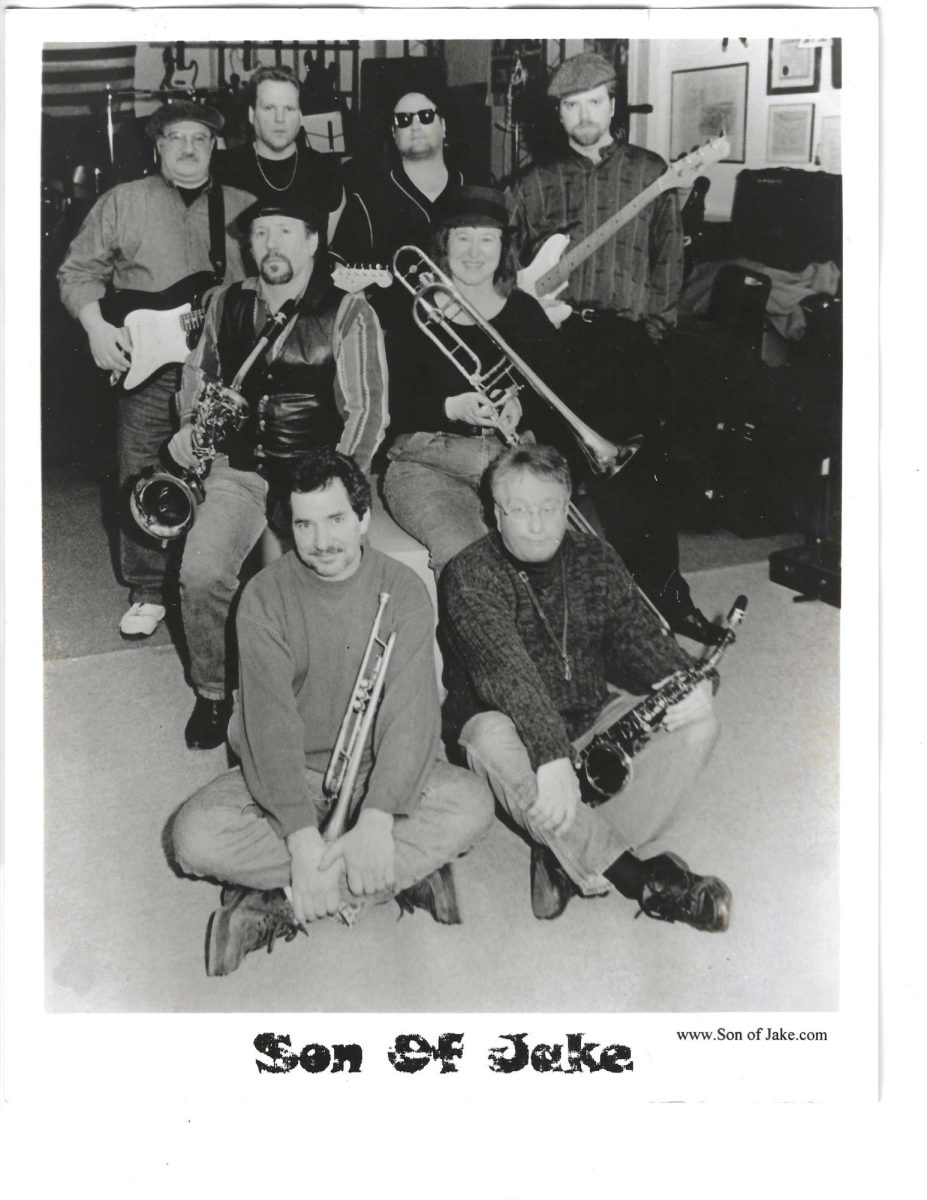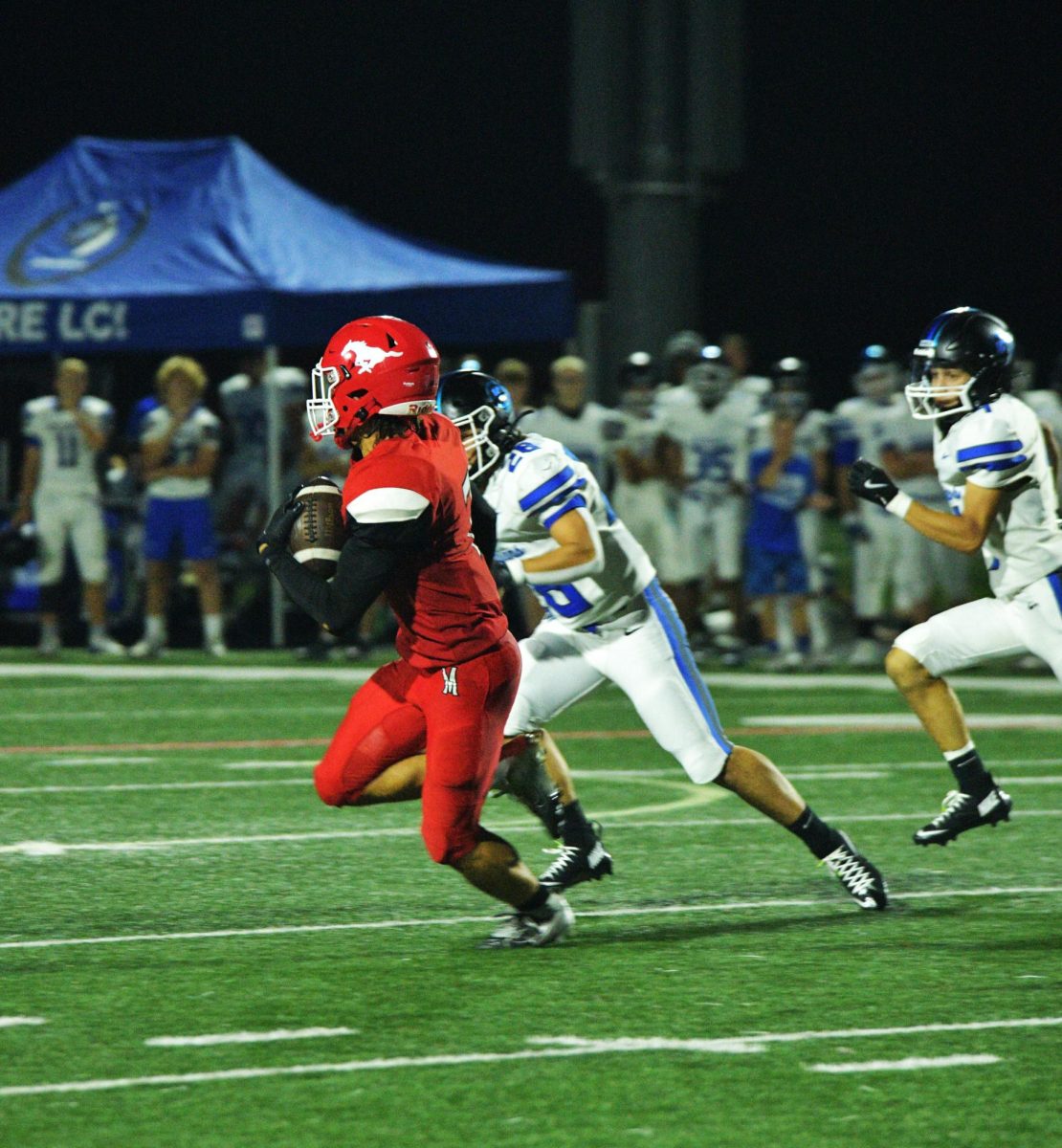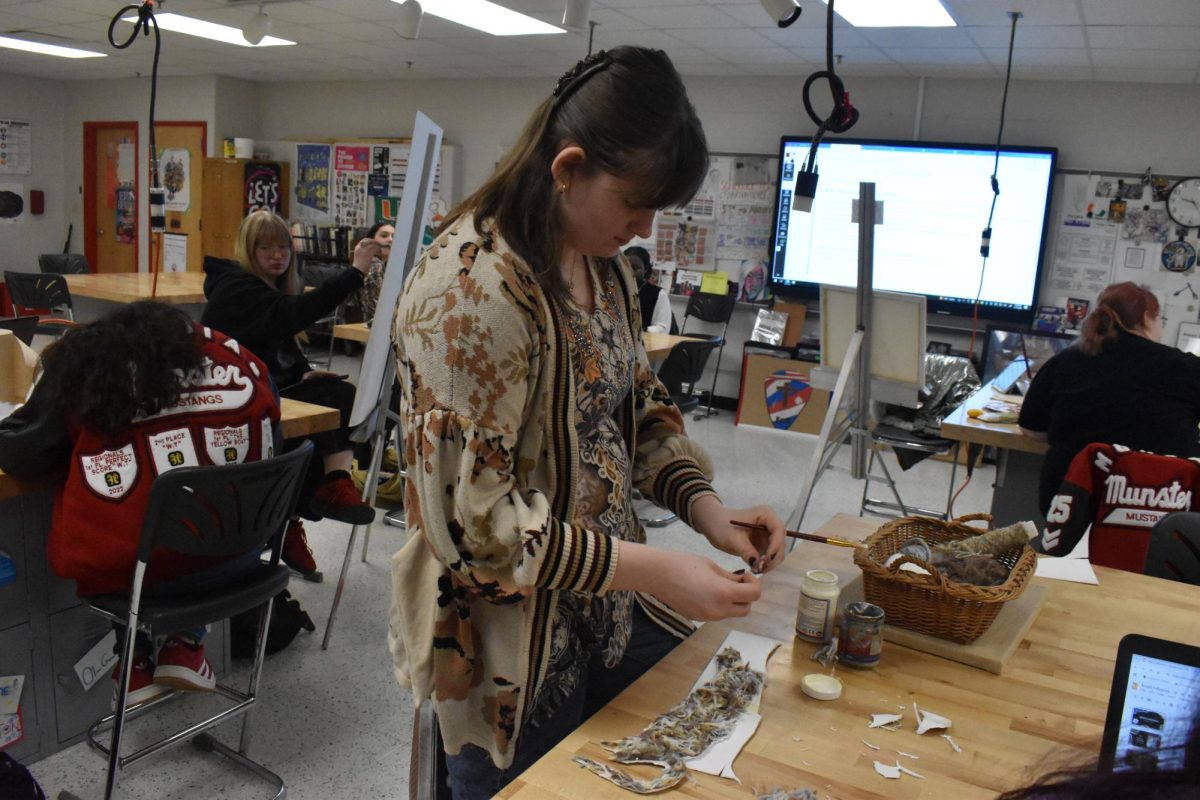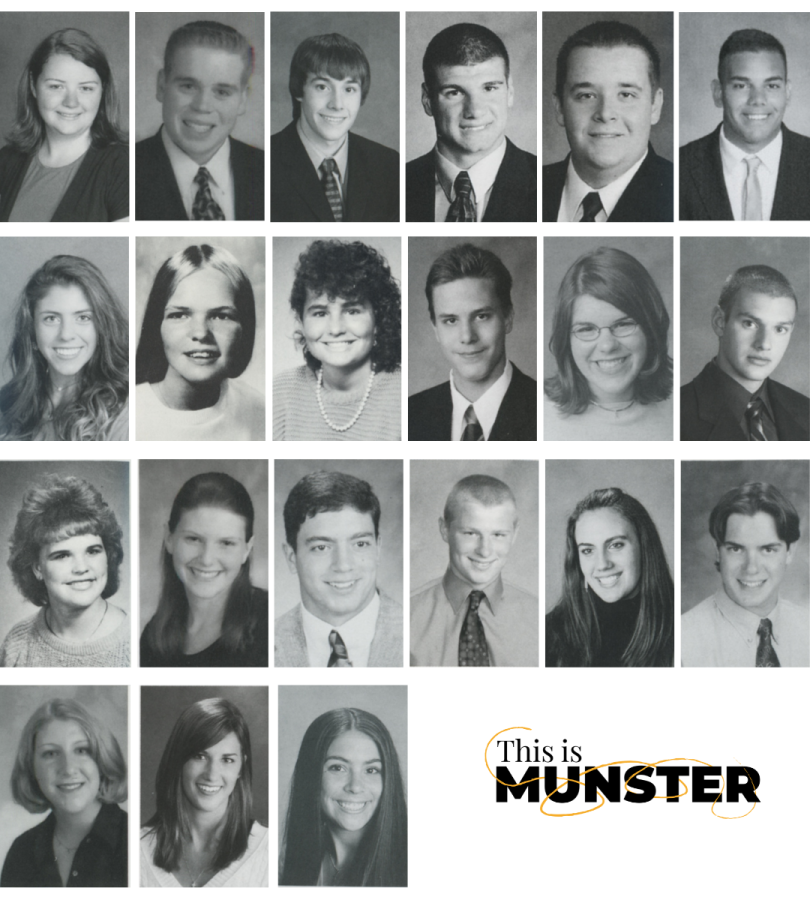OPINION: success shouldn’t be standardized
April 21, 2022
Munster is raising generations of hard workers, scholars and leaders—but at what cost?
When I moved to Munster from Canada, my impression was testing, testing, testing. Kids my age and younger compared ISTEP and NWEA scores, spurred on by my teachers dedicating entire periods to having students analyze their results. Especially in the honors bubble, kids organized themselves in a hierarchy of intelligence, of worth based on achievement. While I had wanted to be a writer, artist or cartoonist prior, it seemed everyone around me only recognized doctor, lawyer or engineer as careers. I constantly heard that STEM was the way to go, that the humanities were not essential nor valued. Students who naturally enjoyed math or science were exceptional, whereas those who did well in English or History were nothing special.
Munster values a certain type of student, and, intentionally or not, conveys that those who don’t fit the mold have lesser worth. You can see it in the amount of teachers the school hires, the recognition and resources they give to certain disciplines. I felt this pressure and did all I could to become the ideal MHS student. I began to lose myself in the stew of preset priorities—career planning instead of exploring, performing instead of learning. Like many of my peers, I drifted away from what I had loved and crammed my schedule with AP’s and high-powered science courses. I stayed up late, I developed an addiction to excessive caffeine drinking and worrying that will likely be alive and well for years to come.
Munster gave me a work ethic, opportunities and the motivation to move from a C to an A student. But the community’s narrow definition of success made me forget who I was. Success is more than getting into a good college, scholarships, good grades, highest honors. It is also being kind, doing what you’re best at, helping other people, exploring, communicating and making connections.
As the school year comes to an end, I dread the grand finale of Munster’s competitiveness. Awards ceremonies, popularity contests, certificates, rankings, transcripts: it’s difficult not to get caught up in comparing one’s inherent worth based on the criteria the school sets. Achievement is certainly worthy of celebration—but that should include all types of achievement, not just academic. We need to address the impact of Munster’s narrow definition of success on our diverse student body. Being a part of this community has instilled in me a work ethic, a competitiveness, a desire to reach my full potential. But one question will haunt me as I navigate post-Munster life and experience the repercussions—was it worth it?































![SNAP HAPPY Recording on a GoPro for social media, senior Sam Mellon has recently started a weekly sports podcast. “[Senior] Brendan Feeney and I have been talking about doing a sports podcast forever. We love talking about sports and we just grabbed [senior] Will Hanas and went along with it,” Mellon said.](https://mhsnews.net/wp-content/uploads/2025/04/sam-892x1200.png)




















